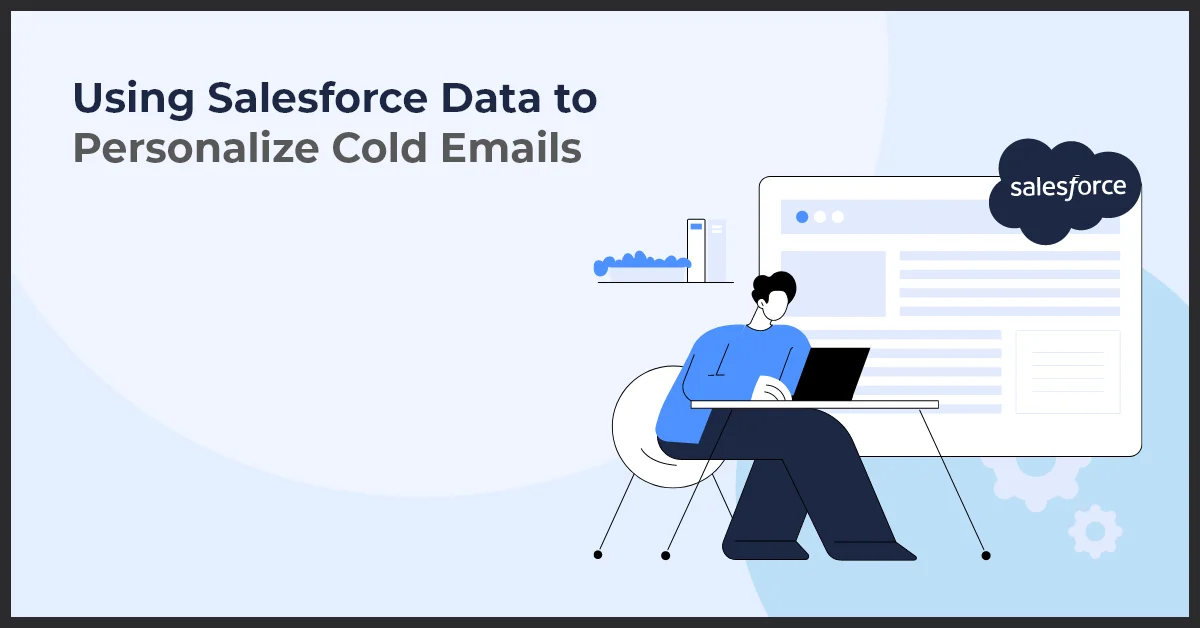Unlocking the Power of Salesforce Contracts: Enhance Your Sales Process

Published on: October 28, 2023
Updated on: July 09, 2024
610 Views
- Salesforce
9 min read
Welcome to our comprehensive guide on Salesforce Contracts, an essential tool for empowering your sales team and elevating your business to new heights. This article will define Salesforce Contracts and explore their significance in streamlining your sales process. Additionally, we will unveil a content plan designed to equip you with valuable insights and strategies to maximize the benefits of Salesforce Contracts. So, let's delve into this game-changing aspect of sales management and witness its transformative impact on your business success.
Understanding Salesforce Contracts
Definition of Contracts
A contract is a legally binding agreement between two or more parties that outlines the rights and obligations of each party. In the context of Salesforce, contracts refer to agreements between a company and its customers or vendors.
Key Elements of Salesforce Contracts
Several key elements make up a Salesforce contract. These include:
Terms and conditions: This section outlines the specific terms of the agreement, such as the scope of work, payment terms, and any deadlines or milestones.
Service level agreements (SLAs): SLAs define the level of service the company is expected to provide, including response times, uptime guarantees, and performance metrics.
Intellectual property rights: Salesforce contracts may also include provisions regarding intellectual property rights, such as data ownership or software developed during the agreement.
Benefits of Proper Salesforce Contract Management
Proper contract management is essential for any business using Salesforce. Some key benefits include:
Reduced legal risks: Clear and well-managed contracts minimize the risk of legal disputes and protect the company's interests.
Improved compliance: Proper contract management ensures the company adheres to industry regulations and standards.
Enhanced collaboration: By centralizing contract information, teams can collaborate more effectively and stay aligned on contract terms and obligations.
Increased efficiency: Streamlining the contract management process saves time and resources, allowing teams to focus on core business activities.
Integration with Contract Management
Salesforce.com, the leading Customer Relationship Management (CRM) platform, offers a powerful integration with contract management systems. This integration allows businesses to streamline their contract process, increase efficiency, and improve overall contract management experience. Here is a closer look at how Salesforce integrates with contract management:
Exploring Salesforce.com Integration
Salesforce.com integration with contract management systems enables seamless data flow between the CRM platform and the contract management solution. This integration allows for real-time updates, improved visibility, and efficient team collaboration. It eliminates the need for manual data entry, reduces the chances of errors, and saves time.
Advantages of Integrating Salesforce with Contract Management
Integrating Salesforce with contract management systems brings numerous advantages to businesses:
- It enhances contract lifecycle management by automating contract creation, approval, and renewal processes.
- It improves contract visibility, allowing the sales team to understand contract status, key dates, and obligations clearly.
- It enables effective collaboration between sales, legal, and finance teams, facilitating streamlined workflows and reducing bottlenecks.
Best Practices for Salesforce-Contract Management Integration
Businesses should follow best practices to maximize Salesforce integration with contract management. These include mapping and syncing key data fields between the CRM and contract management systems, implementing standard contract naming conventions, establishing comprehensive security measures to protect sensitive contract data, and periodically auditing the integration to ensure data accuracy and system performance.
Pro Tip: When integrating Salesforce with contract management systems, ensure thorough mapping and syncing of key data fields to streamline workflows and enhance data accuracy across platforms.
Key Components of Salesforce Contracts
Regarding Salesforce contracts, several key components are crucial in ensuring a successful and efficient sales process. These components streamline the contract management process and enhance the overall customer experience. Let's take a closer look at some of these key components:
Contract Templates
1. Purpose and Benefits of Contract Templates
Contract templates in Salesforce serve as a foundation for creating consistent and legally compliant contracts. They help standardize the contract creation process, ensuring that important clauses and terms are included in every contract. By using contract templates, organizations can save time and reduce the risk of errors.
2. Designing Customized Contract Templates within Salesforce
Salesforce allows users to create customized contract templates that align with their business needs. With a user-friendly interface, organizations can easily design templates with pre-set fields and variables. This enables sales teams to generate contracts quickly and efficiently, ensuring a smooth workflow.
Contract Milestones
1. Defining Contract Milestones and their Significance in Salesforce
Contract milestones represent key events or stages in the contract lifecycle. These milestones can include contract drafting, negotiation, approval, and signing. By defining and tracking contract milestones in Salesforce, organizations can monitor the progress of contracts, identify bottlenecks, and ensure timely completion.
2. Tracking Contract Milestones in Salesforce
Salesforce provides a comprehensive platform for tracking contract milestones. Users can easily set up milestones, assign responsible parties, and track the status of each milestone. This visibility allows sales teams to stay organized, collaborate effectively, and meet important deadlines.
Pro Tip: When designing customized contract templates within Salesforce, consider including dynamic fields and variables to automate data population and personalize contracts for each customer, saving time and enhancing flexibility in contract creation.
Sales Operations and Salesforce Contracts
Sales operations play a crucial role in managing the overall sales process of an organization. One key aspect of sales operations is the effective management of Salesforce contracts. By incorporating Salesforce contracts into the sales operations workflow, businesses can experience streamlined contract management and improved sales performance.
Enhancing Sales Operations with Salesforce Contracts
Integrating Salesforce contracts into the sales operations workflow provides a range of benefits. Sales teams can efficiently track and manage contract terms with Salesforce contracts, including pricing, delivery dates, and other crucial details. This helps ensure that sales operations are aligned with contractual obligations and that sales teams have the necessary information to meet customer expectations.
Integration of Salesforce Contracts into Sales Team's Workflow
When Salesforce contracts are seamlessly integrated into the sales team's workflow, it enhances communication and collaboration between different departments. Sales teams can easily access and share contact information, allowing them to provide accurate and up-to-date information to customers. This integration improves overall efficiency and eliminates potential bottlenecks in the sales process.
Leveraging Salesforce Contract Data for Improved Sales Performance
Salesforce contracts contain valuable data that can be leveraged to drive improved sales performance. Organizations can identify trends, opportunities, and risks by analyzing contract data. This data-driven approach enables sales teams to make informed decisions, develop targeted strategies, and optimize sales processes. Leveraging Salesforce contract data leads to more effective sales planning, improved customer relationships, and increased revenue.
Pro Tip: Implement automated alerts and notifications within Salesforce contracts to prompt sales teams about critical contract milestones, renewal dates, or upcoming tasks, ensuring timely action and proactive management of contractual obligations, ultimately enhancing sales operations efficiency.
Customer Relationship Management (CRM) and Salesforce Contracts
Customer Relationship Management (CRM) plays a crucial role in modern businesses, aiding organizations in managing their interactions and relationships with existing and potential customers. Integration of Salesforce Contracts within the CRM platform is a powerful tool for strengthening these customer relationships and streamlining contract management processes.
Exploring the Connection between CRM and Salesforce Contracts
With Salesforce Contracts seamlessly integrated into the CRM system, businesses gain a comprehensive view of their customer's journey. CRM allows companies to capture and track customer data, including contact information, purchase history, preferences, etc. By linking this valuable CRM data with Salesforce Contracts, businesses can better understand their customers' needs, preferences, and buying behaviors within contract-related activities.
Leveraging Salesforce Contracts to Strengthen Customer Relationships
Salesforce Contracts allow organizations to manage contract lifecycles, from creation and negotiation to renewal and termination. Businesses can enhance customer relationships by leveraging these contract management capabilities within the CRM platform. With a centralized repository for contract information, sales teams can easily access and share contract details, ensuring consistent and coordinated communication with customers. Additionally, Salesforce Contracts enable businesses to proactively identify opportunities for upselling, cross-selling, or renewing contracts, fostering ongoing customer engagement and loyalty.
Integrating CRM Data into Salesforce Contracts for Better Customer Insights
Integrating CRM data into Salesforce Contracts allows businesses to derive valuable customer insights and facilitate data-driven decision-making. Companies can identify patterns and trends by analyzing CRM data alongside contract-related information, understand customer behavior, and adapt their sales strategies accordingly. This integration also enables personalized contract offerings tailored to each customer's unique needs and preferences, further enhancing the customer experience and strengthening customer relationships.
Key Takeaways
- Integrating Salesforce contracts into sales operations workflows streamlines contract management enhances communication between departments, and ensures alignment with contractual obligations.
- Leveraging Salesforce contract data provides valuable insights for improving sales performance. Organizations can identify trends, opportunities, and risks by analyzing contract data, empowering sales teams to make informed decisions, developing targeted strategies, and optimizing sales processes.
- Implementing automated alerts and notifications within Salesforce contracts enables proactive management of critical contract milestones, renewal dates, and tasks. By receiving timely alerts, sales teams can take proactive actions, ensuring compliance with contractual obligations and enhancing sales operations efficiency.
Conclusion
In conclusion, Salesforce contracts are crucial to the sales process and overall business success. Companies can streamline their sales operations and enhance customer relationship management by understanding the key components of Salesforce contracts and integrating them with contract management software.
Considering Salesforce contracts as an integral part of your business strategy can ensure that your organization stays compliant and enjoys a streamlined sales process. By utilizing Salesforce's CRM capabilities, companies can strengthen customer relationships and achieve long-term success.
Ultimately, Salesforce contracts provide a competitive advantage for businesses of all sizes. Organizations can optimize their sales processes, increase productivity, and achieve business success by effectively managing and leveraging these contracts.
Whether a small startup or a large corporation, embracing Salesforce contracts can significantly impact your ability to streamline operations, drive growth, and empower your sales teams. Investing in a robust contract management system, such as the one offered by Salesforce, is a strategic decision that can yield substantial benefits for your organization.
Want to learn more about Salesforce Contracts? The Salesforce experts at Growth Natives are eager to assist you in your Salesforce journey. Connect with us at info@growthnatives.com and get detailed insight and assistance regarding Salesforce contacts.
Frequently Asked Questions
A contract in Salesforce is a legally binding agreement between parties, often detailing terms, conditions, and obligations related to products or services.
Yes, Salesforce can generate contracts through its Contract Management feature, allowing users to create, manage, and track contracts within the platform.
Contracts in Salesforce can be accessed through the Contracts tab or custom objects and related lists, depending on how they are set up in your Salesforce instance.
Service contracts in Salesforce are typically created by associating them with an account or opportunity record, specifying service start and end dates, terms, and conditions. This allows for streamlined management of service agreements within the Salesforce environment.



